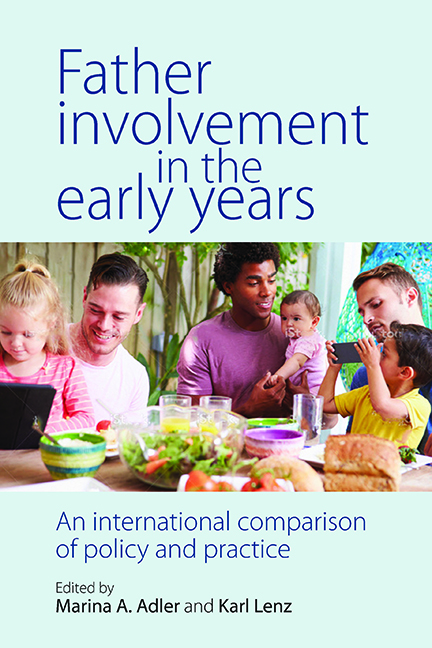Introduction
Published online by Cambridge University Press: 01 September 2022
Summary
The social context of parenting, care work and paid work, as well as the gender division of labour, has been affected by large-scale societal trends relating to gender values, family structures and workplaces over the last few decades (Kamerman and Moss, 2009; Oláh et al, 2014). As part of the changing landscape of parenting in Western advanced countries since the 1970s, women have increasingly become earners in addition to still being the main providers of childcare, and the dominance of male-breadwinner households continues to erode (Lewis, 2002). However, due to cultural perceptions of masculinity and fatherhood, in daily practice, men's provider position in the family has remained more relevant than their participation in childcare. Specifically, despite increased cultural expectations that men should be active and involved fathers, men have changed much less than women with regard to the amount of care and paid work they perform (OECD, 2012). Fatherhood is clearly in transition and being challenged by often contradictory forces: societal expectations to be both an active father and provider; men's own wish to be more involved with their children; and the institutional context in which fathers work and live. There is a gap between cultural ideals, personal aspirations and the structures that would encourage and facilitate new, more inclusive male identities and active fatherhood (Lewis, 2002; Hobson and Fahlén, 2009, 2012). Hence, in terms of combining work and care responsibilities, mothers have almost closed the gender gap in employment, but fathers continue to show a ‘care deficit’ (Hochschild, 2002), and increasingly feel work–family conflict (Aumann et al, 2011). This book explores these phenomena in the context of cross-national variation in governmental and workplace policies and their relation to the daily childcare practice of fathers.
Another hallmark of changing gender relations in Western societies is a de-standardisation of the family life course, an increased diversification of the forms of living together and related changes in the gender division of labour (Oláh et al, 2014). The definitions of what constitutes families, ‘good’ mothers or ‘good’ fathers have become more inclusive, and everyday parenting practices and experiences vary according to social class, ethnicity, age and sexual orientation.
- Type
- Chapter
- Information
- Father Involvement in the Early YearsAn International Comparison of Policy and Practice, pp. 1 - 28Publisher: Bristol University PressPrint publication year: 2015



